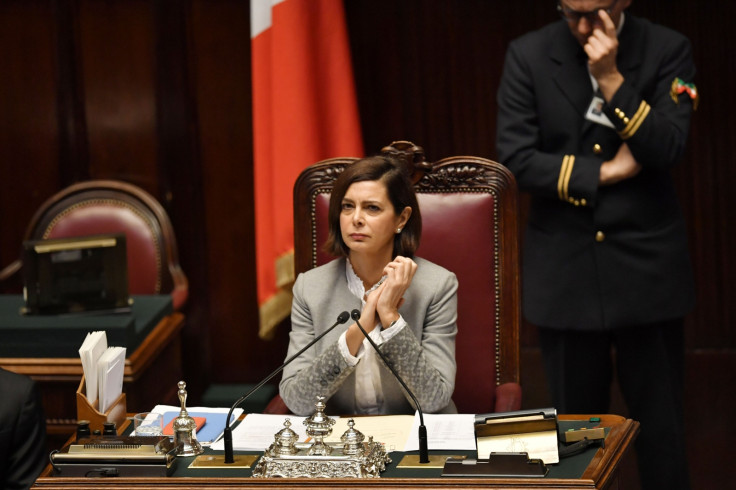Facebook must do more to tackle hate speech, top Italian official Laura Boldrini says
'The company has to take responsibility for this,' Boldrini said.

Facebook needs to do more to weed out hate speech on its platform, Laura Boldrini, the president of Italy's lower house of parliament said on Sunday. Boldrini herself has often been the target of vicious vitriol, sexist online abuse and harassment including threats of rape and murder.
In November, Boldrini complained to Facebook managers regarding hate speech on the popular social media network and suggested multiple measures to address and deal with the issue, Reuters reports.
"Two months after our meeting, they have done nothing," Boldrini told Reuters. "They have not even written to me about what I said."
"Good manners would have expected at least a reply," she continued, adding that she will write an open letter this week to CEO Mark Zuckerberg calling for the social media giant to deal with the problem more proactively and effectively.
"His platform risks becoming home to dangerous predators," Boldrini said. "The company has to take responsibility for this."
On the International Day for the Elimination of Violence Against Women last November, Boldrini shared some examples of hateful comments and online harassment she continues to receive online.
"Boldrini, you are a handicapped wh**e," one comment reads. Others read: "Why hasn't anyone killed this terrorist" and "I want to cut open your brain and piss in it."
Secondo voi questa è libertà di espressione? https://t.co/7mpbqlwZug #noallaviolenzasulledonne pic.twitter.com/19DalYFx3q
— laura boldrini (@lauraboldrini) November 25, 2016
"Do you believe this is freedom of expression?" Boldrini's caption reads.
Boldrini is the third most senior official in the country after Italian President Sergio Mattarella and the president of the upper house Senate Pietro Grasso.
Boldrini said many of these hate-filled comments still show up on her homepage, despite flagging them to senior Facebook managers. She also suggested that the social media giant opens a full office in Italy to handle the country's 28 million users. However, any complaints flagged by users in Italy are currently dealt with by Facebook's European headquarters in Ireland.
She also said hate speech and fake news go hand in hand as well, noting that many users targeting her with abusive comments were prompted by fake news stories about her. Last week, she launched a campaign called "Basta Bufale," which means "Enough with the fake news," to raise awareness about the rise of misinformation and its dangerous consequences.
"Fake news has always existed, but online its impact is potentially boundless," Boldrini told BuzzFeed News. "The most worrying aspect is that fake news, whether it's driven by profit or as political propaganda, is all too often an antechamber to hate.
"It is the combination between fake news that targets adversaries, and the hate this enables, that risk short-circuiting our democracies. It not only pollutes the debate, but it may distort how consensus is built. Being informed is a right, while being misinformed is dangerous."
In December 2016, the European Commission urged major tech companies including Facebook, Twitter, Microsoft and Google's YouTube to quickly address hate speech and incitement to terrorism on their sites. The companies signed a "code of conduct" with the EU in May last year pledging to review the "majority" of flagged illegal content and hate speech within 24 hours and take them down if necessary.
The Commission, however, found the companies reviewed just 40% of the recorded cases in less than 24 hours in six months. In Italy, the removal rate was just 4%, according to the Commission's report.
Facebook said in a statement to Reuters that it is committed to tackling fake news and hate speech on its site and is working with multiple institutions in Italy to address cyberbullying.
"If a newspaper publishes a fake news story that Facebook then amplifies, the initial responsibility is of course the newspaper's. It should verify its sources. That said, Facebook needs to do more than just limit itself to proclamations and good intentions," Boldrini said.
© Copyright IBTimes 2025. All rights reserved.





















